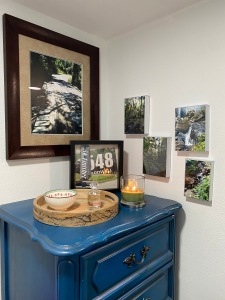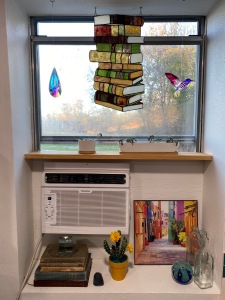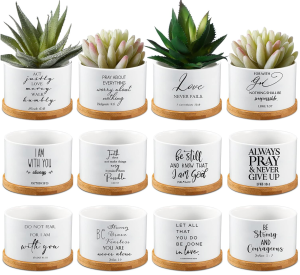
Press on! it fortune play thee false
To-day, to-morrow she ‘ll be true.
Park Benjamin
During the latter part of the Revolution, Thomas McCalla lived in Chester district, South Carolina. He removed thither from Pennsylvania, with his young wife, in 1778. He was a whole-hearted whig; served in the American army before moving to the south, and again enlisted soon after reaching his new home. He was in all the engagements attending Sumter’s operations against the enemy, till the seventeenth of August, 1780, when, by permission, he went to visit his family. A short time afterwards he again joined the fighting men, but was almost immediately taken prisoner, sent to Camden, thrown into jail and threatened daily with hanging. The persevering and heroic endeavors of his affectionate and patriotic wife, to obtain his release, are detailed in the following interesting manner by the author of the Women of the Revolution:
While this brave man was languishing in prison, expecting death from day to day, his wife remained in the most unhappy state of suspense. For about a month she was unable to obtain any tidings of him. The rumor of Sumter’s surprise, and that of Steel, came to her ears; she visited the places where those disasters had occurred, and sought for some trace of him, but without success. She inquired, in an agony of anxiety, of the women who had been to Charlotte for the purpose of carrying clothes or provisions to their husbands, brothers, or fathers, not knowing but that he had gone thither with the soldiers; but none could give her the least information. Imagination may depict the harrowing scenes that must have passed, when females returning to their homes and children after carrying aid to the soldiers, were met by such inquiries from those who were uncertain as to the fate of their kindred. To these hapless sufferers no consolation availed, and too often was their suspense terminated by more afflicting certainty.
In the midst of Mrs. McCalla’s distress, and before she had gained any information, she was called to another claim on her anxiety; her children took the small-pox. John was very ill for nine days with the disease, and his mother thought every day would be his last. During this terrible season of alarm, while her mind was distracted by cares, she had to depend altogether upon herself, for she saw but one among her neighbors. All the families in the vicinity were visited with the disease, and to many it proved fatal. As soon as her child was so far recovered as to be considered out of danger, Mrs. McCalla made preparations to go to Camden. She felt convinced that it was her duty to do so, for she clung to the hope that she might there learn something of her husband, or even find him among the prisoners.
With her to resolve was to act, and having set her house in order, she was in the saddle long before day, taking the old Charleston road leading down on the west side of the Catawba river. The mountain gap on Wateree creek was passed ere the sun rose, and by two o’clock she had crossed the river, passing the guard there stationed, and entered Camden. Pressing on with fearless determination, she passed the guard, and desiring to be conducted to the presence of Lord Rawdon, was escorted by Major Doyle to the headquarters of that commander. His Lordship then occupied a large, ancient looking house on the east side of the main street. The old site of the town is now in part deserted, and that building left standing alone some four hundred yards from any other, as if the memories associated with it had rendered the neighborhood undesirable. It was here that haughty and luxurious nobleman fixed his temporary residence, “sitting as a monarch,” while so many true-hearted unfortunates, whose fate hung on his will, were languishing out their lives in prison, or atoning for their patriotism on the scaffold.
Into the presence of this august personage Mrs. McCalla was conducted by the British major. Her impression at first sight was favorable; he was a fine looking young man, with a countenance not unprepossessing, which we may suppose was eagerly searched for the traces of human sympathy by one who felt that all her hopes depended on him. His aspect gave her some encouragement, and being desired to explain the object of her visit, she pleaded her cause with the eloquence of nature and feeling; making known the distressed situation of her family at home, the fearful anxiety of mind she had suffered on account of the prolonged absence of her husband and her ignorance of his fate, and her children’s urgent need of his care and protection. From Major Doyle she had at length learned that he was held a prisoner by his lordship’s orders. She had come, therefore, to entreat mercy for him; to pray that he might be released and permitted to go home with her. This appeal to compassion she made with all the address in her power, nor was the untaught language of distress wanting in power to excite pity in any feeling heart.
Lord Rawdon heard her to the end. His reply was characteristic. “I would rather hang such —- rebels than eat my breakfast.” This insulting speech was addressed to his suppliant while her eyes were fixed on him in the agony of her entreaty, and the tears were streaming down her cheeks. His words dried up the fountain at once, and the spirit of the American matron was roused. “Would you?” was her answer, while she turned on him a look of the deepest scorn. A moment after, with a struggle to control her feelings, for she well knew how much depended on that -she said, “I crave of your lordship permission to see my husband.”
The haughty chief felt the look of scorn his cruel language had called up in her face, for his own conscience bore testimony against him, but pride forbade his yielding to the dictates of better feeling. “You should consider, madam,” he answered, “in whose presence you now stand. Your husband is a rebel-“
Mrs. McCalla was about to reply – but her companion, the Major, gave her a look warning her to be silent, and in truth the words that sprang to her lips would have ill pleased the Briton. Doyle now interposed, and requested his lordship to step aside with him for a moment. They left the apartment, and shortly afterwards returned. Rawdon then said to his visitor, with a stately coldness that precluded all hope of softening his determination: “Major Doyle, madam, has my permission to let you go into the prison. You may continue in the prison ten minutes only. Major, you have my orders.” So saying, he bowed politely both to her and the officer, as intimating that the business was ended, and they were dismissed. They accordingly quitted the room.
The sight of the prison-pen almost overcame the fortitude of the resolute wife. An enclosure like that constructed for animals, guarded by soldiers, was the habitation of the unfortunate prisoners, who sate within on the bare earth, many of them suffering with the prevalent distemper, and stretched helpless on the ground, with no shelter from the burning sun of September. “Is it possible,” cried the matron, turning to Doyle, ” that you shut up men in this manner, as you would a parcel of hogs!” She was then admitted into the jail, and welcome indeed was the sight of her familiar face to McCalla. The time allotted for the interview was too short to be wasted in condolement or complaint; she told him she must depart in a few minutes, informed him of the state of his family-inquired carefully what were his wants, and promised speedy relief. When the ten minutes had expired she again shook hands with him, assuring him she would shortly return with clothes for his use, and what provisions she could bring, then turning walked away with a firm step, stopping to shake hands with young John Adair and the other captives with whom she was acquainted. The word of encouragement was not wanting, and as she bade the prisoners adieu, she said: “Have no fear; the women are doing their part of the service.” ” I admire your spirit, madam,” Doyle observed to her, “but must request you to be a little more cautious.”
Mrs. McCalla was furnished by the Major with a pass, which she showed to the officer on duty as she passed the guard on her return, and to the officer at the ferry. She rode with all speed, and was at home before midnight; having had less than twenty-four hours for the accomplishment of her whole enterprise; in that time riding one hundred miles, crossing the river twice, and passing the guard four times – – visiting her husband, and having the interview with Lord Rawdon, in which probably for the first time in his life he felt uneasiness from a woman’s rebuke. It convinced him that even in the breast of woman a spirit of independence might dwell, which no oppression could subdue, and before which brute force must quail, as something of superior nature. How must the unexpected outbreaking of this spirit, from time to time, have dismayed those who imagined it was crushed forever throughout the conquered province!
It is proper to say that Mrs. McCalla met with kinder treatment from the other British officers to whom she had occasion to apply at this time, for they were favorably impressed by the courage and strength of affection evinced by her. Even the soldiers, as she passed them, paid her marks of respect. The tories alone showed no sympathy nor pity for her trials; it being constantly observed that there was deeper hostility towards the whigs on the part of their countrymen of different politics, than those of English birth.
Mrs. McCalla began her work immediately after her arrival at home; making new clothes, altering and mending others, and preparing provisions. Her preparations being completed, she again set out for Camden. This time she had the company of one of her neighbors, Mrs. Mary Nixon. Each of the women drove before her a pack-horse, laden with the articles provided for the use of their suffering friends. They were again admitted to the presence of Lord Rawdon to petition for leave to visit the prisoners, but nothing particular occurred at the interview. His lordship treated the matron who had offended him with much haughtiness, and she on her part felt for him a contempt not the less strong that it was not openly expressed. From this time she made her journeys about once a month to Camden, carrying clean clothes and provisions; being often accompanied by other women bound on similar errands, and conveying articles of food and clothing to their captive fathers, husbands, or brothers. They rode without escort, fearless of peril by the way, and regardless of fatigue, though the journey was usually performed in haste, and under the pressure of anxiety for those at home as well as those to whose relief they were going. On one occasion, when Mrs. McCalla was just about setting off alone upon her journey, news of a glorious event was brought to her; the news of the battle of King’s Mountain, which took place on the seventh of October. She did not stop to rejoice in the victory of her countrymen, but went on with a lightened heart, longing no doubt, to share the joy with him who might hope, from the changed aspect of affairs, some mitigation of his imprisonment.
. . . About the first of December, Mrs. McCalla went again to Camden. On the preceding trip she had met with Lord Cornwallis, by whom she was treated with kindness. Whatever hopes she had grounded on this, however, were doomed to disappointment; he was this time reserved and silent. She was afterwards informed by the Major that a considerable reverse had befallen his majesty’s troops at Clermont, and the annoyance felt on this account – Doyle said -was the cause of his not showing as much courtesy as he usually did to ladies. “You must excuse him,” observed the good-natured officer, who seems to have always acted the part of a peacemaker on these occasions; and he added that Cornwallis had never approved of the cruelties heretofore practised.
Towards the last of December the indefatigable wife again performed the weary journey to Camden. McCalla’s health had been impaired for some months, and was now declining; it was therefore necessary to make a strenuous effort to move the compassion of his enemies, and procure his release. Rawdon was in command, and she once more applied to him to obtain permission for her husband to go home with her. As might have been anticipated, her petition was refused: his lordship informed her that he could do nothing in the premises; but that if she would go to Winnsboro’ and present her request to Lord Cornwallis, he might possibly be induced to give her an order for the liberation of the prisoner.
To Winnsboro’, accordingly, she made her way, determined to lose no time in presenting her application. It was on New Year’s morning that she entered the village. The troops were under parade, and his lordship was engaged in reviewing them; there could be no admission, therefore, to his presence for some time, and she had nothing to do but remain a silent spectator of the imposing scene. A woman less energetic, and less desirous of improving every opportunity for the good of others, might have sought rest after the fatigues of her journey, during the hours her business had to wait; Sarah McCalla was one of heroic stamp, whose private troubles never caused her to forget what she might do for her country. She passed the time in noticing particularly every thing she saw, not knowing but that her report might do service. After the lapse of several hours, the interview she craved with Cornwallis was granted. He received her with courtesy and kindness, listened attentively to all she had to say, and appeared to feel pity for her distresses. But his polished expression of sympathy, to which her hopes clung with desperation, was accompanied with regret that he could not, consistently with the duties of his Majesty’s service, comply unconditionally with her request. He expressed, nevertheless, entire willingness to enter into an exchange with General Sumter, releasing MaCalla for any prisoner he had in his possession. Or he would accept the pledge of General Sumter that MaCalla should not again serve until exchanged, and would liberate him on that security. “But, madam,” he added, “it is Sumter himself who must stand pledged for the keeping of the parole. We have been too lenient heretofore, and have let men go who immediately made use of their liberty to take up arms against us.”
With this the long-tried wife was forged to be content, and she now saw the way clear to the accomplishment of her enterprise. She lost no time in returning home, and immediately set out for Charlotte to seek aid from the American general. She found Sumter at this place, nearly recovered of the wounds he had received in the action at Blackstocks, in November, Her appeal to him was at once favorably received. He gave her a few lines stating that he would stand pledged for MaCalla’s continuance at home peaceably until he should be regularly exchanged. This paper was more precious than gold to the matron whose perseverance had obtained it; but it was destined to do her little good. She now made the best of her way homeward. After crossing the Catawba, she encountered the army of General Morgan, was stopped, being suspected to be a tory, and taken into his presence for examination. The idea that she could be thus suspected afforded her no little amusement, and she permitted the mistake to continue for some time, before she produced the paper in Sumter’s hand-writing which she well knew would remove every difficulty. She then informed the General of her visit to Winnsboro’ on the first of January, and her sight of the review of the troops. Morgan thanked her for the information and dismissed her, and without further adventure she arrived at her own house.
A few days after her return, the British army, being on its march from Winnsboro’, encamped on the plantation of John Service, in Chester district, and afterwards at Turkey creek. Mrs. McCalla went to one of those camps in the hope of seeing Lord Cornwallis. She succeeded in obtaining this privilege; his lordship recognised her as soon as she entered the camp, and greeted her courteously, questioning her as to her movements, and making many inquiries about Sumter and Morgan. On this last point she was on her guard, communicating no more information than she felt certain could give the enemy no manner of advantage, nor subject her friends to inconvenience.
At length she presented to the noble Briton the paper which she imagined would secure her husband’s freedom. What was her disappointment when he referred her to Lord Rawdon, as the proper person to take cognizance of the affair! The very name was a death-blow to her hopes, for she well knew she could expect nothing from his clemency. Remonstrance and entreaty were alike in vain; Cornwallis was a courteous man, but he knew how, with a bland smile and well-turned phrase of compliment, to refuse compliance even with a request that appealed so strongly to every feeling of humanity, as that of an anxious wife pleading for the suffering and imprisoned father of her children. She must submit, however, to the will of those in power; there was no resource but another journey to Camden, in worse than doubt of the success she had fancied just within her reach.
It was a day or two after the battle of the Cowpens that she crossed the ferry on her way to Camden. She had not yet heard of that bloody action, but, observing that the guard was doubled at the ferry, concluded that something unusual had occurred. As she entered the village, she met her old friend Major Doyle, who stopped to speak to her. His first inquiry was if she had heard the news; and when she answered in the negative, he told her of the “melancholy affair” that had occurred at the Cowpens. The time, he observed, was most inauspicious for the business on which he knew she had come. “I fear, madam,” he said, “that his lordship will not treat you well.”
“I have no hope,” was her answer, “that he will let Thomas go home; but, sir, it is my duty to make efforts to save my husband. I will thank you to go with me to Lord Rawdon’s quarters.”
Her reception was such as she had expected. As soon as Rawdon saw her, he cried angrily, ” You here again, madam! Well–you want your husband -I dare say! Do you not know what the – rebels have been doing?”
“I do not, sir,” replied the dejected matron, for she saw that his mood was one of fury.
“If we had hung them,” he continued, “we should have been saved this. Madam! I order you most positively never to come into my presence again!”
It was useless, Mrs. McCalla knew, to attempt to stem the tide; she did not therefore produce, nor even mention the paper given her by Sumter, nor apologise for the intrusion by saying that Lord Cornwallis had directed her to apply to him; but merely answered in a subdued and respectful tone by asking what she had done.
“Enough!” exclaimed the irritated noble. “You go from one army to another, and Heaven only knows what mischief you do! Begone.”
She waited for no second dismissal, but could not refrain from saying, as she went out, in an audible voice, “My countrymen must right me.” Lord Rawdon called her back and demanded what she was saying. She had learned by this time some lessons in policy, and answered, with a smile, “We are but simple country folk.” His lordship probably saw through the deceit, for turning to his officer, he said, “Upon my life, Doyle, she is a wretch of a woman!” And thus she left him.
That great event – the battle of the Cowpens-revived the spirits of the patriots throughout the country. Every where, as the news spread, men who had before been discouraged flew to arms. The action took place on the seventeenth of January, 1781; on the twenty-second of the same month, six wagons were loaded with corn at Wade’s island, sixty miles down the Catawba for the use of General Davison’s division. The whole whig country of Chester, York and Lancaster may be said to have risen in mass, and was rallying to arms. Mecklenburg, North Carolina, was again the scene of warlike preparation; for the whigs hoped to give the enemy another defeat at Cowans or Batisford on the Catawba. On the twenty-fourth of January, General Sumter crossed this river at Landsford, and received a supply of corn from Wade’s island, His object was to cross the districts to the west, in the rear of the advancing British army, to arouse the country and gather forces as he went, threaten the English posts at Ninety-Six and Granby, and go on to recover the State. While Cornwallis marched from his encampment on Service’s plantation, the whigs of Chester, under the gallant Captains John Mills and James Johnston, were hovering near, watching the movements of the hostile army as keenly as the eagle watches his intended prey. Choosing a fit opportunity, as they followed in the rear, they pounced upon a couple of British officers, one of whom was Major McCarter, at a moment when they had not the least suspicion of danger, took them prisoners in sight of the enemy, and made good their retreat. By means of this bold exploit the liberation of MaCalla was brought about, at a time when his wife was wholly disheartened by her repeated and grievous disappointments. When General Sumter passed through the country, a cartel of exchange was effected, giving the two British officers in exchange for the prisoners of Chester district in Camden and Charleston.
The person sent with the flag to accomplish this exchange in Camden, was Samuel Neely of Fishing creek. As he passed through the town to the quarters of Lord Rawdon, he was seen and recognized by the prisoners, and it may be supposed their hearts beat with joy at the prospect of speedy release. But in consequence of some mismanagement of the business, the unfortunate men were detained in jail several weeks longer. Neely was in haste to proceed to Charleston, being anxious, in the accomplishment of his mission in that city, to get his son Thomas out of the prison-ship, and in his hurry probably neglected some necessary formalities. His countrymen in Camden were kept in confinement after his return from Charleston with his son. Captain Mills was informed of this, and indignant at the supposed disrespect shown by Lord Rawdon to the cartel of General Sumter, wrote a letter of remonstrance to Rawdon, which he entrusted to Mrs. McCalla to be conveyed to him.
Our heroine was accompanied on this journey by Mrs. Mary Dixon, for she judged it impolitic that the letter should be delivered by one so obnoxious to his lordship as herself. Still she deemed it her duty to be on the spot to welcome her liberated husband, supply all his wants, and conduct him home. The distance was traversed this time with lighter heart than before, for now she had no reason to fear disappointment. When they arrived at Camden, they went to the jail. John Adair was standing at a window; they saw and greeted each other, the women standing in the yard below. Perhaps in consequence of his advice, or prudential considerations on their part, they determined not to avail themselves of the good offices of Major Doyle on this occasion. Adair directed them to send the jailor up to him, and wrote a note introducing his sister to the acquaintance of Lord Rawdon. The two women then proceeded to the quarters of that nobleman. When they arrived at the gate, Mrs. McCalla stopped, saying she would wait there, and her companion proceeded by herself. She was admitted into the presence of Lord Rawdon, who read the note of introduction she handed to him, and observed, referring to the writer – that the small-pox had almost finished him; still, he had come very near escaping from the jail; that he was “a grand ‘scape-gallows.” On reading the letter of Captain Mille his color changed, and when he had finished it, turning to Mrs. Nixon, he said in an altered tone: “I am sorry these men have not been dismissed, as of right they ought.” He immediately wrote a discharge for eleven of the prisoners, and put it into her hands, saying: “You can get them out, madam. I am very sorry they have been confined so many weeks longer than they should have been.” At the same time he gave Mrs. Nixon a guinea. “This,” he said, “will bear your expenses.”
His lordship accompanied her on her way out, and as she passed through the gate his eye fell on Mrs. MeCalla, whom he instantly recognized. Walking to the spot where she stood near the gate, he said fiercely: “Did I not order you, madam, to keep out of my presence?” The matron’s independent spirit flashed from her eyes, as she answered:
“I had no wish, sir, to intrude myself on your presence; I stopped at the gate on purpose to avoid you.” Unable to resist the temptation of speaking her mind for once, now that she had a last opportunity, she added: “I might turn the tables on you, sir, and ask, why did you come out to the gate to insult a woman? I have received from you nothing but abuse. My distresses you have made sport of, and I ceased long since to expect anything from you but ill-treatment. I am now not your supplicant; I came to demand, as a right, the release of my husband!” So saying, she bowed to him contemptuously, wheeled about, and deliberately walked off, without stopping to see how her bold language was received. Mrs. Nixon hastened after her, pale as death, and at first too much frightened to speak. As soon as she found voice, she exclaimed: “Sally you have ruined us, I am afraid! Why, he may put us both in jail!”
Mrs. McCalla laughed outright. “It is not the first time, Mary,” she replied, “that I have given him to understand I thought him a villain!” The two made their way back to the prison, but even after they got there Mrs. Nixon had not recovered from her terror. She was informed that it would be some time before the prisoners could be released.
The blacksmith was then sent for, and came with his tools. The sound of the hammering in the appartments of the jail, gave the first intimation to the women who waited to greet their friends, that the helpless captives were chained to the floor. This precaution had been adopted not long before, in consequence of some of the prisoners having attempted an escape. They were then put in handcuffs or chained by the ankle. These men left the place of their long imprisonment and suffering in company with the two women, and as they marched through the streets of Camden, passing the British guard, they sang at the top of their voices the songs of the “liberty-men.”
______
Excerpted from Noble Deeds of American Women
(Patriotic Series for Boys and Girls)
Edited by J. Clement
——
With an Introduction by Mrs. L. H. Sigourney
Illustrated
BOSTON: Lee and Shepard, Publishers
Entered by Act of Congress, in the year of 1851,
by E. H. Derby and Co., in the Clerk’s Office of the Northern District of New York
______










